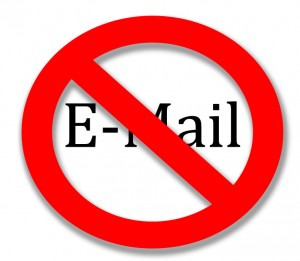 In South Carolina, apparently so. Now for those of you reading this you are more than likely using your mobile device or tablet or desktop computer and this blog post was received via the internet to your email address. As a matter of fact, you probably can’t even conceive of not having internet access. In the waning weeks of 2013 you may very well be in the majority of practitioners, too.
In South Carolina, apparently so. Now for those of you reading this you are more than likely using your mobile device or tablet or desktop computer and this blog post was received via the internet to your email address. As a matter of fact, you probably can’t even conceive of not having internet access. In the waning weeks of 2013 you may very well be in the majority of practitioners, too.
However, some Luddites still exist in the profession. Maybe more than we think.
The action stems from an order that was issued in October of 2011 that stated that all attorneys must include a “mailing address, an e-mail address, and a telephone or cell phone number” in their profile on South Carolina’s “Attorney Information System.” The legal wrangling in this particular case starts with this order and includes dozens of frivolous filings and months of ‘snail-mail’ correspondence. The short of it is that the attorney refused to get a valid e-mail address and the S.C. Supreme Court found that conduct sanctionable. The primary reason listed for the attorney’s refusal is that she “is retired ‘as there have been no clients in over thirty (30) years’ and she does not have Internet access.”
While I’m sure there was a little more to the suit which aggravated the commission, the upshot is the final bell has rung. This case clearly states the following:
…the Court found that the attorney and her conduct posed “a substantial threat of serious harm to the public and to the administration of justice” and she was suspended.
The bare bones of this lawsuit finally let’s every lawyer know in unequivocal terms that technology is no longer discretionary but an absolute requirement if you are to honor your professional obligations. Don’t be surprised when very soon other technological advancements are also deemed basic essential tools for the proper practice of law such as e-discovery, electronic delivery of all filings to both the courts and opposing counsel, discovery and pleadings to opposing counsel, and more.





















There are still attorneys that refuse to communicate via email about a matter and insist on snail mail. I wish my jurisdiction would adopt a rule requiring that email transmission of communications be treated with equal validity as those placed in the US mail or those communications conducted via telephone. I think an attorney would be hard pressed to explain to a court why he refused to accept opposing counsel’s phone call or mail on a matter.
Not having an email address? No internet? These days even retirees have social media accounts. I guess if she hasn’t had a client in thirty years it’s time to stop fooling herself that she needs to keep her law license.